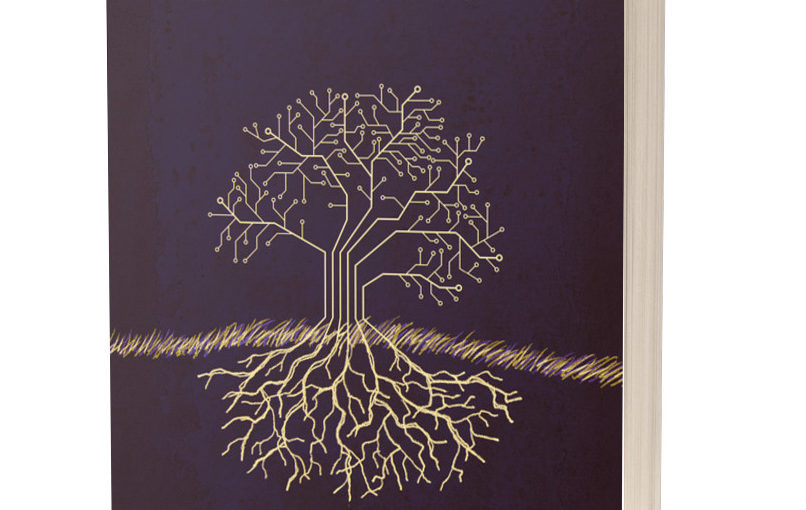It’s another installment in the HUMOR SERIES.
If you’re new here or late to the series, get started on these previous articles:
1 Intro: Laughing from birth
2. Step 1: Tickle Rats
3. What makes something funny may surprise you
4. Jokers ARE wild: Subversive Humor

How humor works like a mini BRAIN SCAN
(Secular) Biologist Robert Lynch, who also performs as a comedian, sees humor as an adaptive, learned trait; and one that helps us connect with others who share our values.
His theory about humor?
“You laugh because you believe it is true,” says Lynch, and his experiments seem back up his theory, at least partially.
A joke, in other words, is like a little brain scan: When we laugh, we reveal what’s inside us. -Robert Lynch
In an experiment Lynch conducted, a variety of people were video-recorded while watching an edgy comic who joked about gender inequality. The volunteers were then given a psychological test that measured their unconscious gender attitudes. Those with mid-20th century gender views of women being responsible for home and children and men bread-winning laughed harder at that joke than those with more progressive views.
In another experiment, people Lynch terms “self-deceivers” found much less humor in an entire joke reel, in general.
I’m guessing that because Lynch used this “self-deceivers” language to identify reluctant laughers, he probably laughs at just about everything. Naturally, if scientists are self-deceiving they are doing something wrong. Something unreasonable?
I’m betting that to Lynch “self-deceivers” are “other people”. Otherwise, he would term them “discerning” or “wise” or “judicious” or “pensive” or “still thinking about it” or maybe just “unsure”.
So, I wonder if he’s just a bit off the mark.
Could the phenomenon of less laughs be a combination of a few things he hasn’t accounted for?
• Could less laughter be a result of natural personality or temperament traits?
• Fewer habits of deep introspection?
• Previous experiences that predispose infrequent laughers to think quietly instead of giggle aloud?
• Or a mismatch in values? (What sorts of jokes were told? We don’t know because he doesn’t say.)
The subjectivity of laughter producing humor seems to be at play a bit more than his experiments can account for. And that’s no joke.
I do agree with Lynch on this point:
We can conceal our true opinions, but in the moment of unguarded laughter, we reveal our true preferences.
Lynch says that the trait of a sense of humor is desirable and its presence or lack thereof helps us select a mate: A sense of humor is always listed in the top five traits people look for when mate-hunting.
Plus, humor helps us bond with those in our group, or determine who’s outside our group. This does seem clear.
And lest we forget, (the non self-deceived?) Lynch likes to work the crowd at open mic comedy nights. Does this scientist have a formula?
Yes. Sort of. Basically.
Here’s how he does it:
He finds common ground and builds on it. First he works at locating something held in common. Then, he points out a shared opinion or value, and underscores something that rings true to listeners.
It might start with some simple commonality like the geographical location of the place, a sports team preference, or the clientele in attendance.
He’s also snarky. If you like that style you might be amused.
“It’s great to be in New York City again. The coral reef created by sinking subway cars off Manhattan has a 58% higher rate of stabbings than a natural reef.” (or something like that. blah blah blah…you can watch the video on his theory here.)
If I’m writing a joke, often what I do is I look at things that I think are true, that people tend not to admit to, or maybe reluctant to admit to, including myself. -Lynch
Of course, I don’t hold the similar belief that the reason for laughter happened ad hoc and by chance, as Robert Lynch contends. That idea seems more like a punchline to me.
“Why did the cave man laugh? I’ll tell you in ten million years…”
(yes that was mine)
Sure, we adapt using humor, and we always well, but I doubt the source of humor was landed on by sheer mistake or mutation + time. HA-but that’s a good one. You almost had me, Lynch!
What may be the case is something that isn’t so stupefyingly accidental or self-deceiving. Something reasonable.
Namely, that One beyond our comprehension designed and equipped us purposefully with a sense of humor and in a way that we can better socially bond in positive ways…because we inherently need each other.
In a future post, I will go a bit further and pose a kind of theory for the purpose of humor and the reason for laughter based on some work from different researchers and my own educational background.
The takeaway:
If you want to know what someone is really like and what they really think, pay attention to what and whom they laugh at. Laughter is a kind of brain scan.
And examine what makes you laugh.
Dig deeper and find out more about yourself and what needs improving.
I hope you’ve liked this series.
Tell me which has been your favorite post so far.
Come back for “funny friday” and the rest of the series!
xo
-Lisa
For the latest info on my humor related projects sign up here.
 My conversation today is with Ed Cyzewski about his vital book Reconnect: Spiritual Restoration for Digital Distraction. The NOVEMBER 2020 Spark My Muse Book Club pick.
A great way to say “thanks for the audio” is to stop by the extras page to get all the show notes and great links HERE: https://www.patreon.com/posts/40306757 😃. (patreon.com/sparkmymuse | Episode 182)
• Hear our conversation about Ed’s previous book on prayer here
Register for the LIVE discussion (Spark My Muse book club): https://www.crowdcast.io/e/spark-my-muse-book-club-/register
My conversation today is with Ed Cyzewski about his vital book Reconnect: Spiritual Restoration for Digital Distraction. The NOVEMBER 2020 Spark My Muse Book Club pick.
A great way to say “thanks for the audio” is to stop by the extras page to get all the show notes and great links HERE: https://www.patreon.com/posts/40306757 😃. (patreon.com/sparkmymuse | Episode 182)
• Hear our conversation about Ed’s previous book on prayer here
Register for the LIVE discussion (Spark My Muse book club): https://www.crowdcast.io/e/spark-my-muse-book-club-/register







